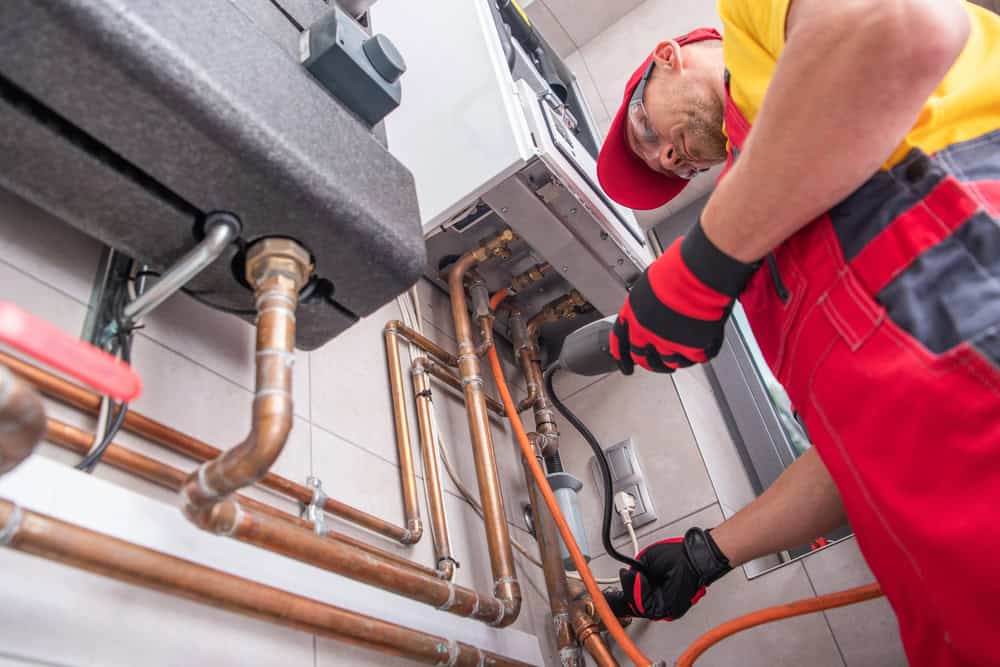Gas lines are essential for many households, providing fuel for heating, cooking, and appliances. However, working with gas lines comes with inherent risks, making safety a top priority.
If you’re considering installing or repairing a gas line, it’s vital to approach the task with caution and knowledge. Here are five safety tips to guide you through the process.
1. Prioritize Professional Help
Calling in the professionals is often the best course of action when it comes to gas line work. Licensed plumbers or gasfitters have the training and expertise to handle gas safely.
They understand the codes and regulations necessary for installation and repairs. Attempting this work without the right qualifications can lead to dangerous situations, including leaks or even explosions.
Even if you feel confident about your DIY skills, consider the risks involved. Gas lines are not forgiving; a single mistake can have grave consequences.
Hiring a professional can save you time and ensure that the job is done correctly. Plus, many professionals offer warranties on their work, giving you peace of mind.
In addition to expertise, professionals often have access to specialized tools. These tools are necessary for tasks like pressure testing and leak detection.
Using the right equipment minimizes the risk of accidents. Professional installation can also provide the assurance that your gas line will operate safely and efficiently for years to come.
Lastly, if you suspect any issues with your existing gas line, don’t hesitate to call in an expert. Timely intervention can prevent minor problems from escalating into major hazards.
Safety should always come first, and professionals are your best bet to ensure that.
2. Familiarize Yourself with Local Regulations
Every locality has specific rules and regulations governing gas line installations. Familiarizing yourself with these can save you headaches down the line.
Some areas require permits for gas work, while others may need inspections after the job is completed. Understanding these requirements can help you avoid fines and other legal repercussions.
Before you start working, consult your local building department. They can inform you about the regulations that pertain to gas lines in your area.
It might also help to contact your gas company for additional guidelines. They may have resources available for residents undertaking gas line projects.
In many jurisdictions, failing to adhere to local codes can jeopardize your insurance coverage. If something goes wrong during an unpermitted installation, your insurer may refuse to cover damages.
This can leave you with a hefty bill for repairs. Knowing the rules in advance is an easy way to prevent these kinds of pitfalls.
Lastly, keeping a record of your work is beneficial. Documenting the installation or repair can provide proof of compliance with local laws.
This documentation can be invaluable should any questions arise later, providing you with a safety net against potential issues.
3. Use Proper Tools and Equipment
Having the right tools for the job is essential for safety when working with gas lines. Basic tools like wrenches and pipe cutters are necessary, but specialized tools may be required for specific tasks.
Using inappropriate tools can lead to leaks, damage, or even personal injury.
Before starting, gather all the necessary equipment. This might include pipe sealants, pressure gauges, and leak detection solutions.
Make sure that all tools are in good working condition as well. Using worn-out or damaged tools can be a recipe for disaster.
Also, never underestimate the importance of personal protective equipment (PPE). Safety gloves, goggles, and masks can protect you from harmful fumes and sharp edges.
A small investment in PPE can go a long way toward preventing injuries and ensuring a safer work environment.
Finally, maintain a clean workspace. A cluttered area can lead to accidents, especially when working with flammable materials.
Keeping your tools organized not only enhances safety but also improves efficiency. A safe environment allows you to focus on the task at hand, reducing the risk of mistakes.
4. Be Aware of Gas Odors and Signs of Leaks

A key aspect of working safely with gas lines is being aware of potential leaks. Natural gas is odorless, but gas companies add a distinctive odorant to help detect leaks.
If you ever smell a rotten egg-like scent, it’s crucial to act quickly. Don’t ignore these warning signs.
If you suspect a leak, evacuate the area immediately. Open windows and doors if it’s safe to do so, and avoid using any electrical switches or devices, as they may ignite the gas.
Your safety is the priority, so ensure that everyone is a safe distance away from the suspected leak.
In the event of a gas odor, it’s crucial to contact an orlando plumber who is trained to handle gas leaks safely and efficiently. Trying to fix a leak yourself is ill-advised without proper training and equipment. The risk of explosion or fire is simply too high.
Regular inspections can also help catch potential leaks before they become dangerous. If you’re using gas appliances, check for signs of wear and tear, such as corroded pipes or loose fittings.
Staying vigilant can save lives and protect property, making awareness an essential habit.
5. Know How to Shut Off the Gas Supply
In the event of a leak or emergency, knowing how to shut off the gas supply can make all the difference. Most homes have a main gas shut-off valve located near the gas meter or where the line enters the house.
Familiarize yourself with its location and ensure everyone in the household knows how to access it quickly.
The procedure for turning off the valve is usually straightforward. Simply turn the valve clockwise until it stops.
However, practice this procedure when there’s no emergency, so that you can do it swiftly under pressure. This kind of preparedness can save lives.
Consider marking the valve’s location with a clear, visible label. This way, even guests or new residents can find it in case of an emergency.
Time is of the essence during a gas leak, and easy access to the shut-off valve can prevent catastrophic outcomes.
Remember to establish a plan for emergencies. Regular drills can help your family or roommates know exactly what to do in a gas leak situation.
Having a clear, practiced plan will alleviate panic and confusion when it matters most, ensuring that safety is prioritized in critical moments.









Leave a Comment